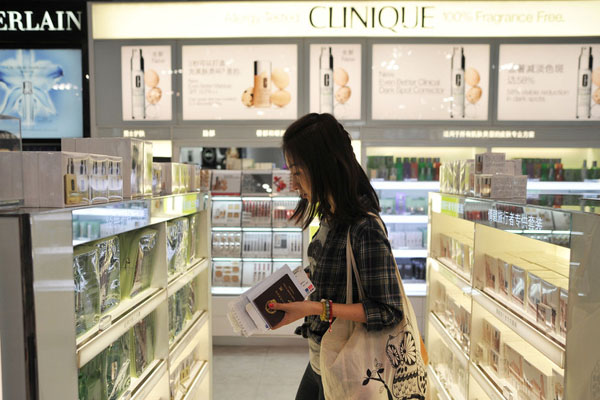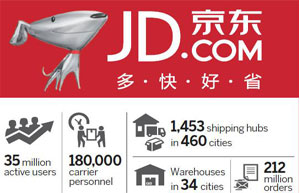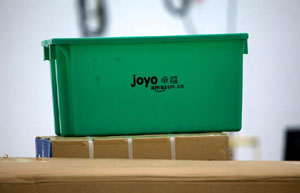|
 |
|
A woman looks at cosmetic products in a duty free shop in Beijing, on April 20, 2012. [Photo/IC] |
The desire for foreign goods purchased via the Internet is becoming so common in China it has spawned the term haiwai daigou, which roughly means overseas shopping representatives.
These representatives, who make a living by selling tax-free foreign goods to Chinese buyers over the Internet, are facing a dilemma as a new customs regulation requires all enterprises and individuals engaged in cross-border e-commerce to go through the process of customs declaration.
Analysts said that the new rule is good news to legitimate online daigou platforms, such as Tmall Global, but catastrophic to small companies and individuals, who have been practicing in the gray area of China's booming daigou market, which is estimated at 100 billion yuan ($16.23 billion) in 2014.
The new regulation from the General Administration of Customs, which came into effect on Aug 1, stipulates that all enterprises and individuals engaged in cross-border e-commerce have to provide a list of imported and exported items to the customs authorities.
When the value of the imported items reaches a certain amount, the authorities will impose tax, which means the price advantage of private daigou will no longer exist, said Lu Zhenwang, an independent Internet expert and the chief executive officer of the Shanghai-based e-commerce firm Wanqing Consultancy.
Lu said the new regulation is expected to force private shopping representatives and small companies to quit the business or transform their business model.
"Those who do not play by the rules will be seen as lawbreakers or even smugglers. That's a risk few people would want to take," he said.
The exact number of those who are engaged in private daigou business is unknown. They often spread the information of the goods they sell from Alibaba Group Holding Ltd's Taobao marketplace to weibo accounts of Weibo Corp, a Twitter-like service, and Tencent Holdings Ltd's WeChat, a popular mobile messaging app with more than 400 million users.
Statistics from the Hangzhou-based China E-commerce Research Center show the market for online daigou amounted to 74.4 billion yuan in 2013. The center forecasts it will exceed 100 billion yuan in 2014.
Yao Jianfang, an analyst with the e-commerce research center, said that large online platforms with proper customs declarations, such as Alibaba's Tmall Global and JD.com Inc, which both directly link overseas merchants with Chinese buyers, are expected to benefit from the new customs regulation as the surging demand for overseas products is irreversible.
"The increasing wealthy Chinese customers simply adore foreign brands. Luxury goods, cosmetics and baby-care products are those in high demand by Chinese shoppers," she said.
However, how to actually supervise private daigou behavior could pose a challenge for authorities.
 |
 |
| JD delivers with 10% increase on Nasdaq debut | Top 10 most popular online shopping sites in China |
